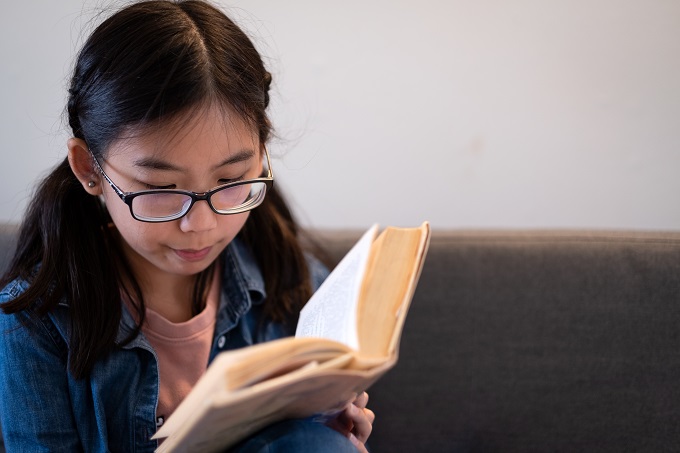
During September, many Australian universities start making early offers to Year 12 students for a place next year. This is ahead of the main rounds of offers, due in January.
These early entry schemes have been around for many years. But offers soared during COVID, with more than 40,000 school-leavers estimated to have received an early offer in 2021 and again in 2022.
These numbers saw early entry schemes slammed for lacking the “transparency” of the Australian Tertiary Admission Rank (ATAR), being an aggressive recruitment strategy by universities, and encouraging students to “slacken off” in their final exams.
Read the latest print edition of School News HERE
In February, federal Education Minister Jason Clare announced early offers could not be issued before September. He said a national approach to early entry should be developed in time for 2027 enrolments, based on recommendations from the Universities Accord review.
Despite these criticisms, there has been no comprehensive research into early entry schemes. But my new study shows they can be a significant help to students from disadvantaged backgrounds hoping to go to university.
What are early entry schemes?
In Australia, most domestic students gain admission to an undergraduate degree via an ATAR. This is calculated to reflect a Year 12 student’s rank against other students in their state, taking into account their overall subject results.
Increasingly, young people are gaining access to university through early entry. These programs target Year 12 students who can receive an offer to study at university based on criteria other than (or in addition to) their ATAR.
Admission criteria differ across universities, but often include one or more Year 11 results, a recommendation from the student’s school, a personal statement demonstrating skills such as collaboration, resilience, or empathy, and extracurricular achievements.
Offers are released before students get their ATAR – and in many cases, before final exams, which generally begin in October. However, students still need to complete Year 12 and sometimes still need to meet a minimum ATAR.

My research
In 2023, I interviewed 24 current university students who had gained admission via early entry. I also interviewed a small number of their parents/carers to shed light on the broader impacts of early entry on families.
I focused on students from regional and remote locations, students who were the first in their family to go to uni, Indigenous Australians, and people with a disability, as they are most disadvantaged in mainstream schooling and in their access to higher education.
Some researchers have suggested early entry schemes favour students with personal or socioeconomic advantages due to parent and principal advocacy in recommendation letters and better access to career guidance.
But I found these schemes can benefit students most in need.
Early entry can help address disadvantage
Many of the students I spoke to experienced complex home lives, physical and/or mental ill-health, and multiple forms of disadvantage. As a result, university had often felt out of reach.
This meant an early offer was a huge boost to a student’s confidence. As Paris* told me:
I don’t believe I would have gotten into university if it wasn’t for the early entry. I didn’t think university was an option for me, ever, because of the town that I grew up in, my family’s low economic status and especially going through homelessness in Year 11 and 12 and then COVID on top of that – everything just kept piling on. So, going through this early entry scheme 100% gave me the confidence to be able to pursue [my] career and be able to do life in general.
Securing an early place at university also gave families more time to plan for this significant life event. As Angela, a parent, said:
It helped ease the pressure and the stress of trying to work out […] accommodation up there. And then organise finances and things like that because I’m a single parent […] I had to get loans to help [my daughter], to help her do what she wants to do in life.

Early entry can reduce stress
Students who experienced stress, anxiety, physical and/or mental ill-health in Year 12 felt early entry helped them manage their wellbeing as they moved from school to university. As Deirdre, a student, told me:
I applied in Year 12 for early entry before I sat my [final exams]. I had a lot of personal factors that year. I struggle with nine chronic illnesses at the current moment. It was more like six in Year 12. Early entry really just gave me an opportunity to not have to fret over the HSC [Higher School Certificate] if I was sick. It gave me a really healthy and positive pathway into university.
Students don’t ‘slacken off’
Media reports have suggested early entry students stop trying in their final exams if they know they have already got a university place. But this wasn’t the case among those interviewed.
Students wanted to demonstrate their offer was warranted. As Gavran said:
I really wanted [my HSC] to reflect how well I could do to show that I deserved the early entry offer.
Broader notions of success
Ultimately, students valued the way early entry schemes could broaden how their capabilities were assessed.
They said it allowed their potential to shine through, accepting them based on who they are as a person rather than what they can achieve in an exam. As Alicia said:
Early entry ultimately accepts a student for more than just that number and for more than just the culmination of 13 years of schooling. It accepts a person, a young adult, for more than just one incredibly stressful point in life.
Where to next?
My research also found schools don’t always give senior students clear information about different pathways to university and focus on the ATAR route instead.
So students need to be given information about the full range of ways to get to university. Schools must be supported to stay on top of all the available options in an increasingly complex admissions landscape.
As we move towards a national approach to early entry, we need to consider the perspectives of students and their families who have not traditionally gone to university.
This is important if we want to support students from diverse backgrounds to go to uni – and move beyond the narrow portrayal of early entry schemes in the media.
*names have been changed.![]()
Sally Patfield, Lecturer, Teachers and Teaching Research Centre, School of Education, University of Newcastle
This article is republished from The Conversation under a Creative Commons license. Read the original article.







